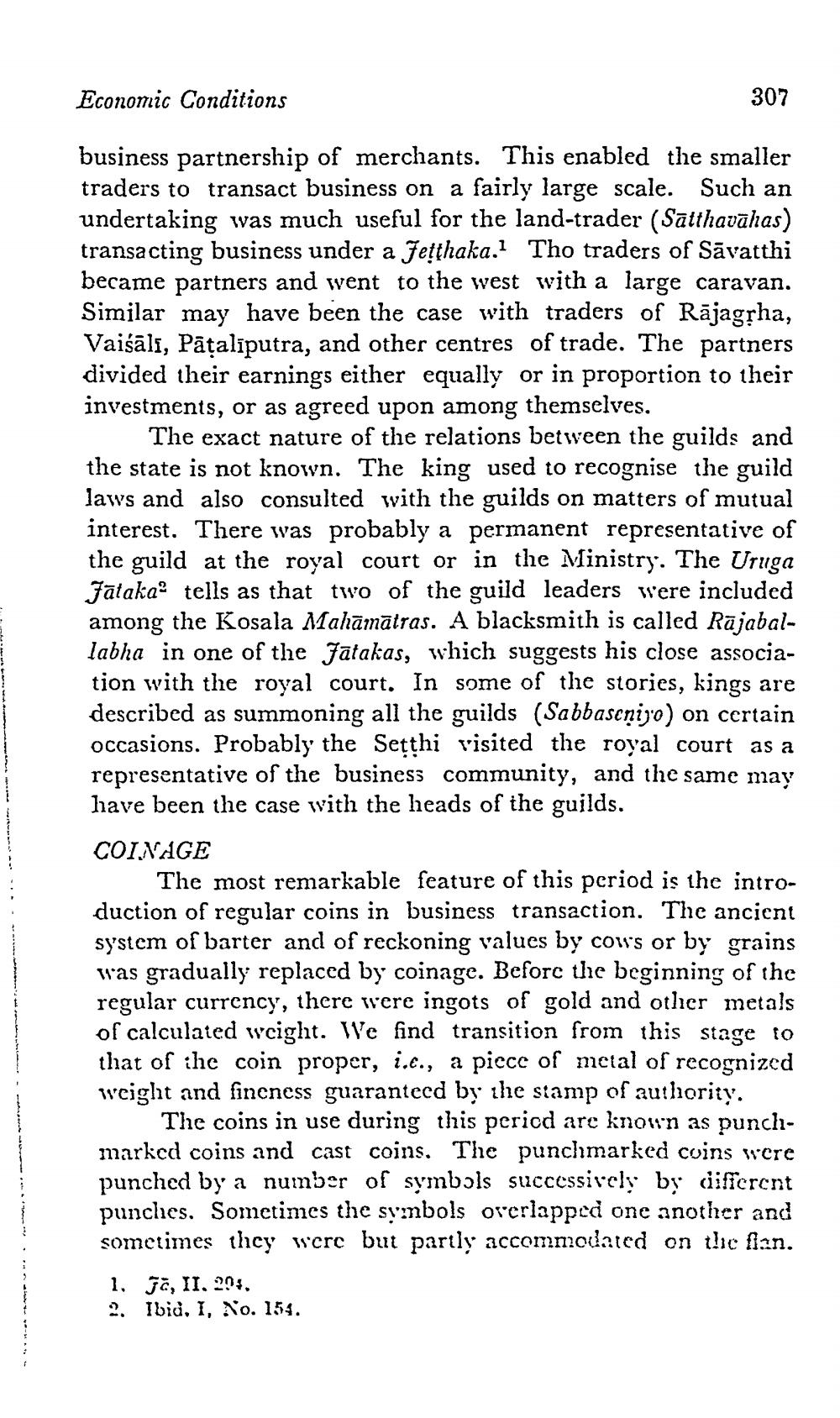________________
Economic Conditions
307
business partnership of merchants. This enabled the smaller traders to transact business on a fairly large scale. Such an undertaking was much useful for the land-trader (Satthavāhas) transacting business under a Jetthaka. Tho traders of Sāvatthi became partners and went to the west with a large caravan. Similar may have been the case with traders of Rājagsha, Vaiśāli, Pāçalīputra, and other centres of trade. The partners divided their earnings either equally or in proportion to their investments, or as agreed upon among themselves.
The exact nature of the relations between the guilds and the state is not known. The king used to recognise the guild laws and also consulted with the guilds on matters of mutual interest. There was probably a permanent representative of the guild at the royal court or in the Ministry. The Uruga Jātakatells as that two of the guild leaders were included among the Kosala Mahāmālras. A blacksmith is called Rājaballabha in one of the Jatakas, which suggests his close association with the royal court. In some of the stories, kings are described as summoning all the guilds (Sabbaseniyo) on certain occasions. Probably the Setthi visited the royal court as a representative of the business community, and the same may have been the case with the heads of the guilds. COINAGE
The most remarkable feature of this period is the introduction of regular coins in business transaction. The ancient system of barter and of reckoning values by cows or by grains was gradually replaced by coinage. Beforc the beginning of the regular currency, there were ingots of gold and other metals of calculated wcight. We find transition from this stage to that of ihe coin proper, i.e., a piece of metal of recognized weight and fineness guaranteed by the stamp of authority.
The coins in use during this period are known as punchimarked coins and cast coins. The punchmarked coins were punched by a number of symbols successively by different punches. Sometimes the syinbols orerlapped one another and sometimes they were but partly accommodated on the filan. 1. Jä, II. 294. .. Ibid. I, No. 154.




